Warning: This post deals with content that is upsetting, violent, and racist.
Despite what you may have learned in history class, it's important to remember that the media often got the black civil rights movement completely wrong at the time. From factual inaccuracies to racist coverage, newspaper clippings show that public sentiment was a far cry from unanimous support for anti-black racism protests throughout history.
We can use these failures to see how it has undoubtedly shaped media coverage of the George Floyd and Black Lives Matter protests today. Here are just a few examples of times that newspapers failed the black civil rights movement in the '50s and '60s:
1. First, in reference to the lynching of Emmett Till, the Daily Argus-Leader referred to the 14-year-old boy as a "husky lad."

2. This was shortly after the Clarion-Ledger in Jackson, Mississippi, had called black voter registration advocate Rev. George W. Lee's assassination an "odd incident."

3. On the Bus Boycott, The Montgomery Advertiser wrote, "It is wrong to hold the [bus] company hostage. Segregation sentiment dominates Montgomery, and will for a long time to come."

4. After the Brown vs. Topeka ruling, so-called "Citizen's Councils" formed to spread the message of white supremacy and segregation in Mississippi. The newspaper, The Citizens' Council, wrote, "Their aim is to preserve separation of the races against assaults from the National Association for the Advancement of Colored People, in alliance with the federal government."
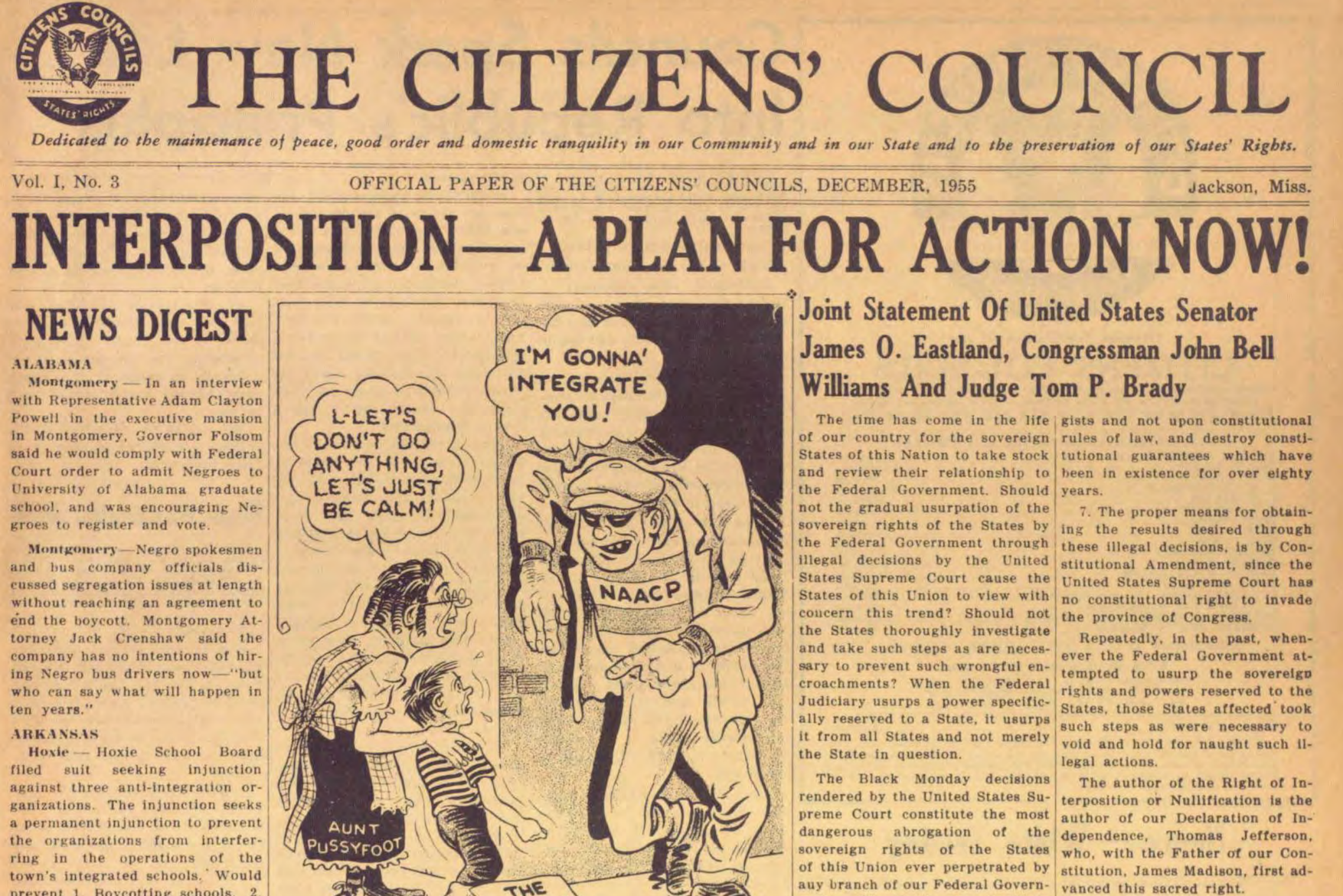
5. In response to Little Rock, Common Sense — "The nation's anti-communist newspaper — called Grace Lorch, a woman who helped extract one of the Little Rock Nine from a mob, a "communist race mixer." Those in favor of integration were frequently accused of being communists.
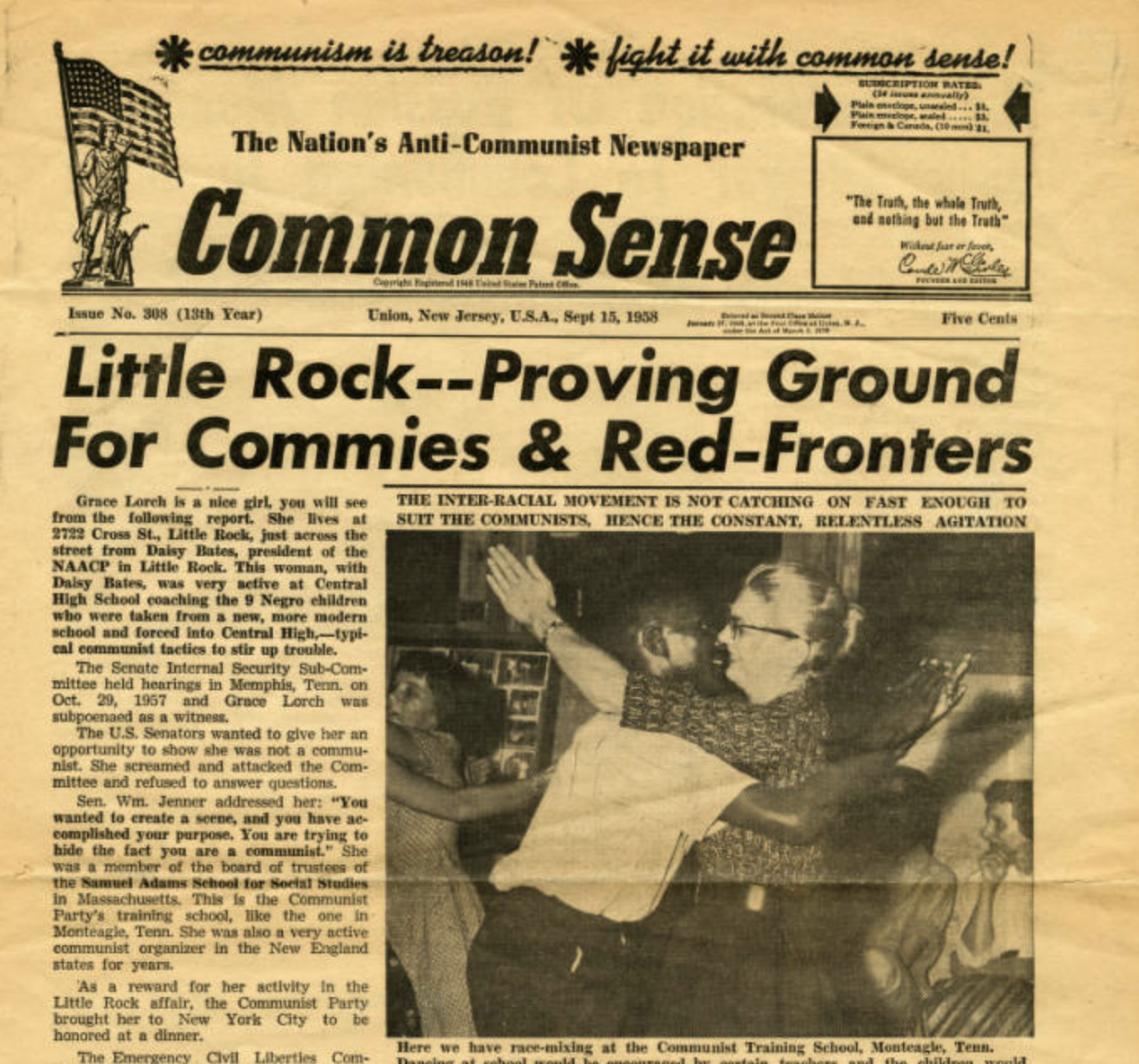
6. On the Greensboro Sit-ins, The New York Times wrote, "A sounding of opinion in the affected areas showed that much more might be involved than the matter of the Negro's right to sit at a lunch counter for a coffee break. The demonstrations were generally dismissed at first as another college fad of the 'panty-raid' variety."
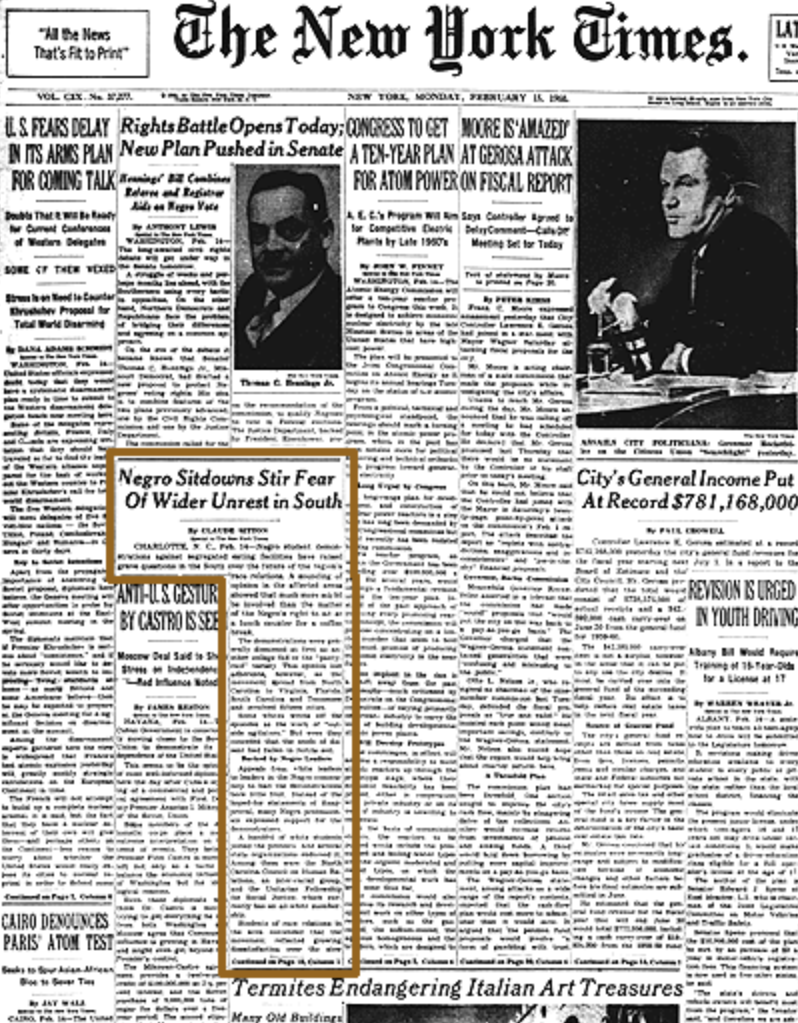
7. On the Freedom Rides, The Anniston Star wrote, "Regardless of who is primarily to blame for the onrush of hoodlumism yesterday, [...] the collapse of law and order will cost us millions, if not billions, in years to come." This is in reference to a mob of several hundred white people who beat the Freedom Riders after they were abandoned by the police.
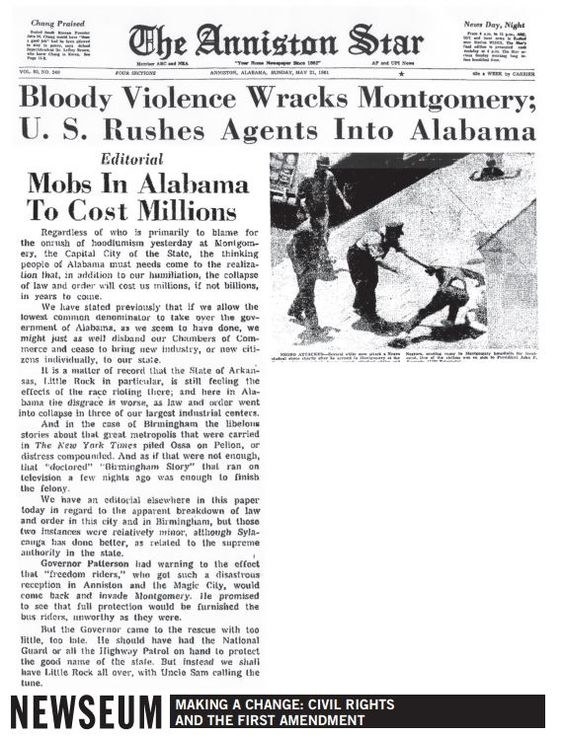
8. When referring to James Meredith's admission into the all-white University of Mississippi, the Jackson Daily News warned against giving into "wild-eyed social bandits who have used this venom to turn many of the nation's cities into sidewalks of jungle terror."
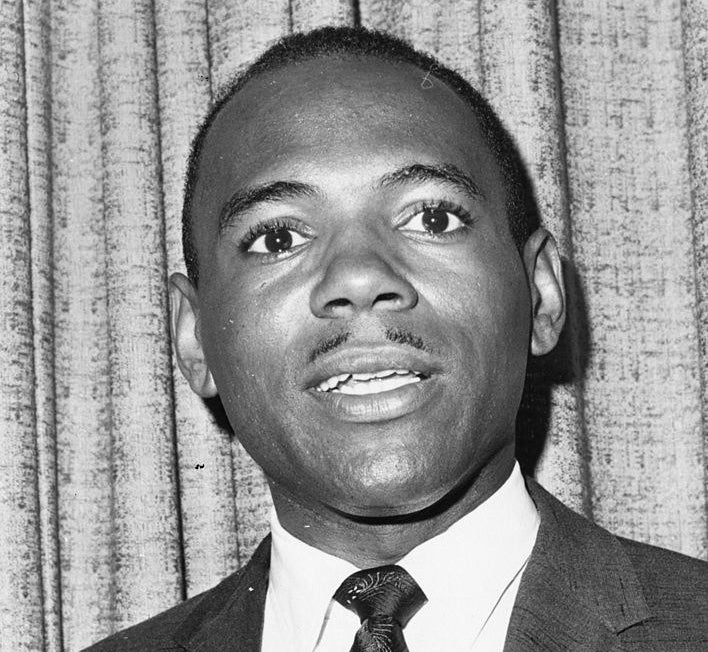
9. On the Birmingham campaign, The Birmingham News published a statement from white clergymen which read, "We are now confronted by a series of demonstrations by some of our Negro citizens, directed and led in part by outsiders. [...] But we are convinced that these demonstrations are unwise and untimely."
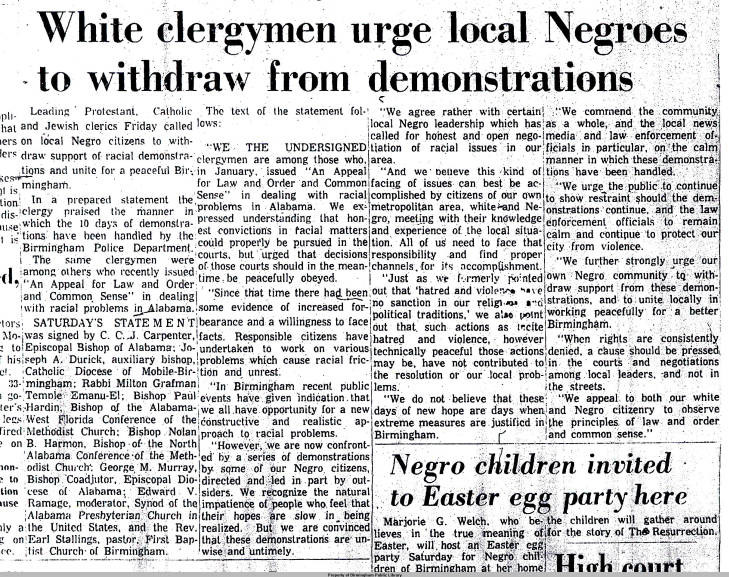
10. Also on the Birmingham campaign, The Birmingham News wrote, "Negro mobs break through police." The event was scarcely covered on the newspaper's front pages, the protestors' aims were not covered, and images of police dogs and hoses were not used.

11. Before the March on Washington, the Chicago Sun-Times wrote, "This is the day of the march for civil rights in the nation's capital and the dread specter of possible violence hangs over the proceeding." The paper continued that it "approves of the fundamental cause of civil rights. It does not, however, approve of the march as a method to dramatize that cause."

12. After the March on Washington, The State Journal published a piece which began, "The march on Washington will go down in history as marking a day of public disgrace — a step backward in the evolution of the American system of government."
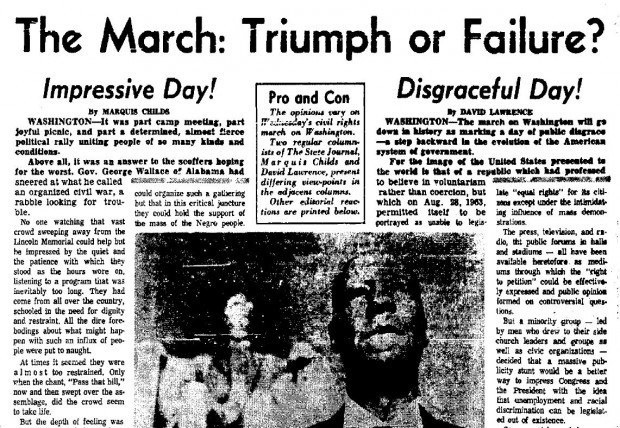
13. In reference to the Freedom Summer, The Meridian Star referred to volunteers as "unshaven and unwashed trash" who were "muddling with things about which they know nothing and concern them not."
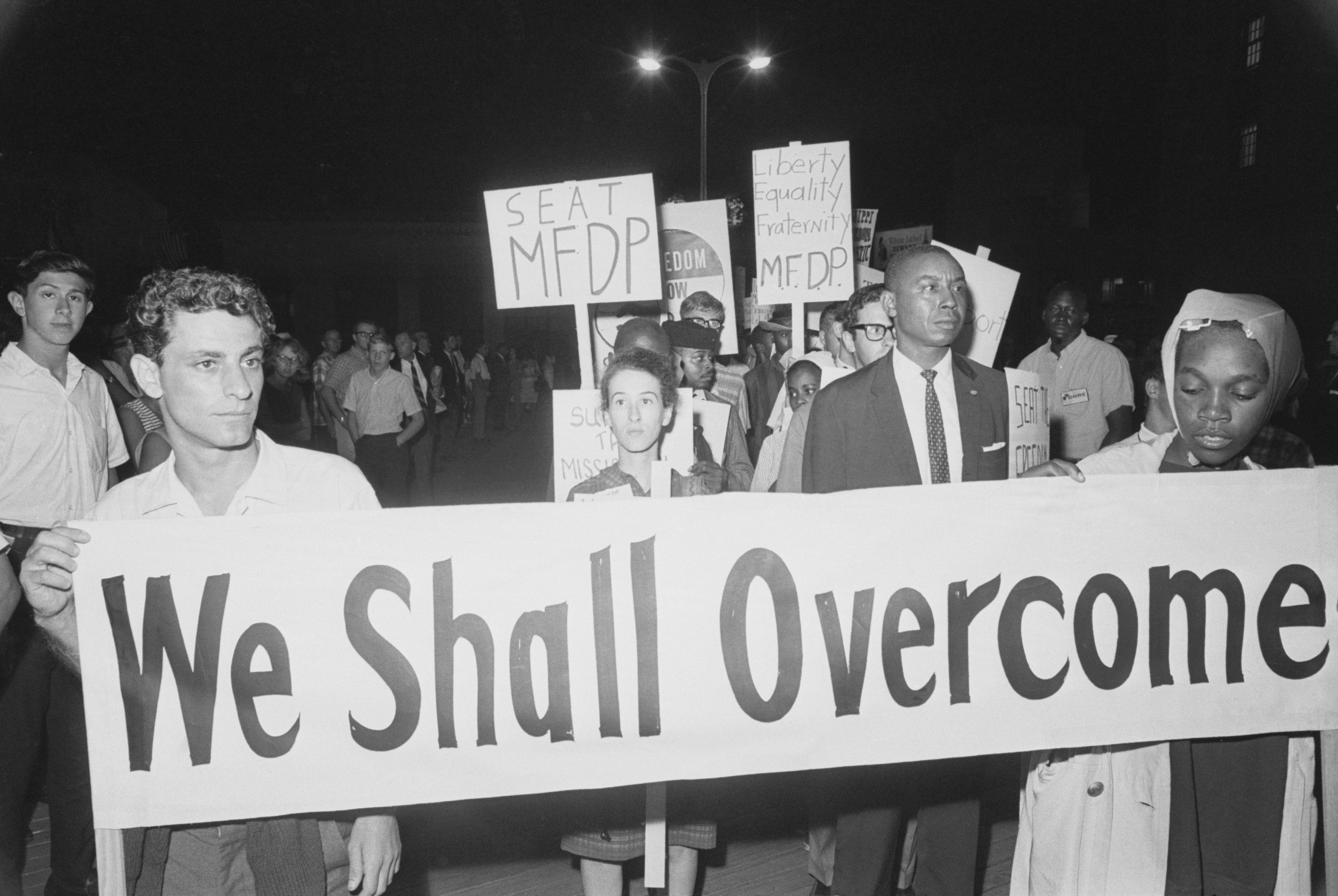
14. In reference to the Selma March, the Plain Dealer published a Methodist Bishop's statement which warned against the march and called it "a great disservice to the cause of human freedom."
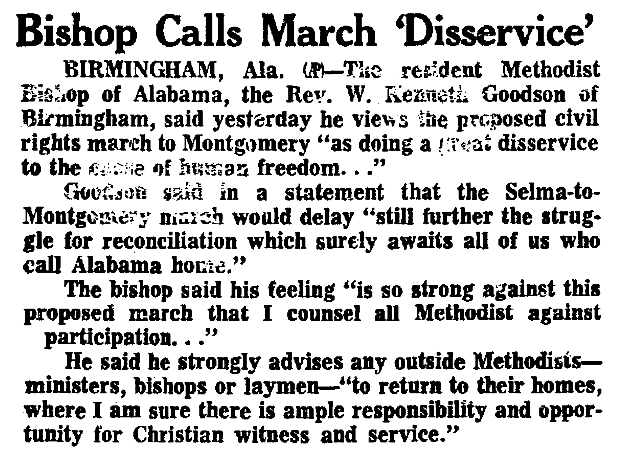
15. In the Valdosta Daily Times' front page coverage of Martin Luther King Jr.'s assassination, an article quoting the Grand Dragon of the KKK, Calvin Craig, was included.


